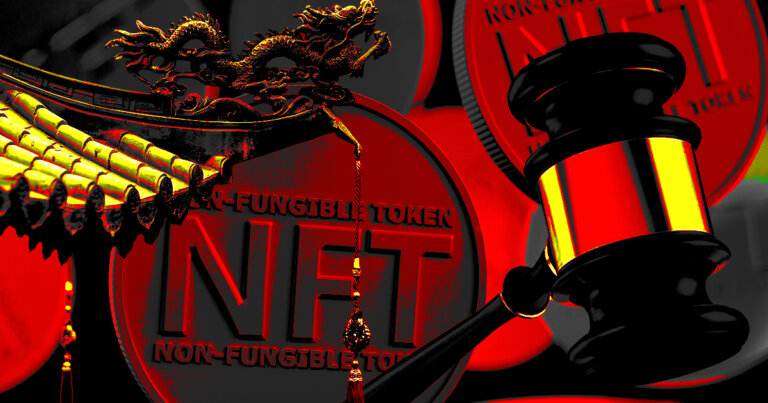 Chinese Hangzhou Court calls for NFT regulation
Chinese Hangzhou Court calls for NFT regulation Chinese Hangzhou Court calls for NFT regulation
According to the Court, the NFTs have characteristics of value, scarcity, controllability and tradability.

Cover art/illustration via CryptoSlate. Image includes combined content which may include AI-generated content.
China’s Hangzhou Court claimed that NFTs carry characteristics of property rights like value, scarcity, disposability, and readability, and therefore should be protected by the law.
The Hangzhou Internet Court is a court of special jurisdiction that focuses on internet-related cases. The Court dealt with a case in late November in which it called for NFT regulations.
The Hangzhou Hearing
The Hangzhou Digital Technology Company, which runs an NFT marketplace and a platform user, was on each side of the hearing.
The user claimed it didn’t receive the NFT it purchased, even after fulfilling all the requirements. The user claimed the company refunded them instead of delivering the purchased NFT.
The user claimed that the company caused him financial harm by withholding from their end of the bargain and sued to ask to either deliver the NFT or compensate for his financial loss by paying 99,999 yuan ($14,368).
In response, the company argued that they didn’t facilitate the transfer because the information user provided during the purchase didn’t match.
Hangzhou Internet Court sided with the user because the transaction involved NFT digital collections, not NFT rights certificates. The court stated:
“NFT digital collections have the object characteristics of property rights such as value, scarcity, disposability, and tradability. They also have the unique properties of network virtual property such as network virtuality and technology, and are network virtual property.
The contract involved does not violate the laws and regulations of our country, nor does it violate our country’s realistic policy and regulatory orientation to prevent economic and financial risks, and should be protected by our laws.”
China on crypto
China has been known for its anti-crypto stance. The country banned crypto mining in 2021, and many crypto executives have fled due to its strict regulations.
However, crypto enthusiasts have been pushing for change. In October, China-backed researchers called for launching a pan-Asian digital currency to rival the U.S. dollar’s dominance in the region. In November, it was revealed that China still holds all the crypto it confiscated, and the total amount equates to $3.9 billion.
Looking at the signs, BitMex’s CEO Arthur Hayes speculated that China might utilize Hong Kong’s crypto-embracing attitude to capitalize on crypto.








































































































